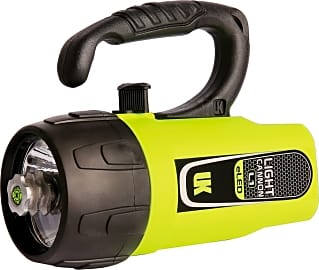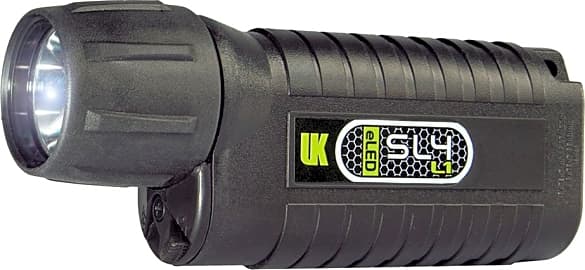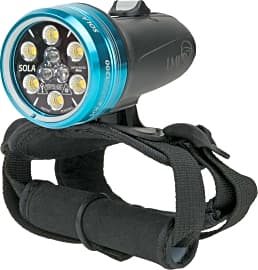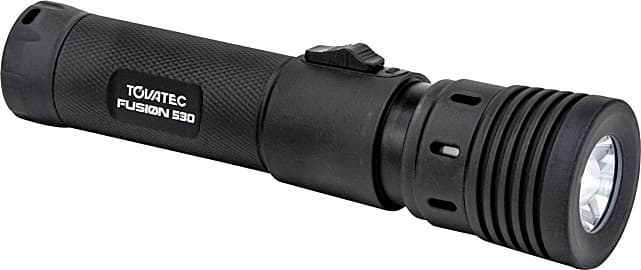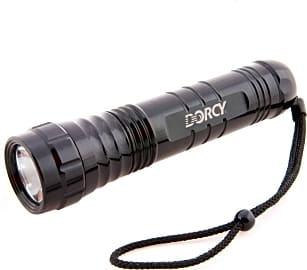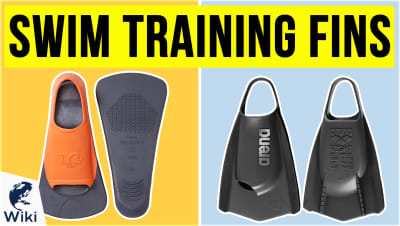The 10 Best Dive Lights

This wiki has been updated 40 times since it was first published in September of 2015. By heading down to explore the depths of the ocean, you can find some of the most spectacular visual experiences available on Earth. That is, of course, if you can see what's in front of you. Illuminate your way with one of these durable dive lights. They make it possible to enjoy all the glories of marine life clearly and provide the right lighting for videos and professional-quality photography. When users buy our independently chosen editorial recommendations, we may earn commissions to help fund the Wiki.
Editor's Notes
May 04, 2019:
Unless you're in crystal-clear, shallow waters, an underwater light is a diving must-have. The options chosen for this list reflect the diversity of the diving community: there are small models for casual divers, in addition to professional-caliber units for underwater photographers and videographers. Virtually every product featured here is crafted for durability, so no matter which one you choose, you can rest assured it will perform well in a variety of temperatures and conditions.
The OrcaTorch D520 was removed and replaced with the updated OrcaTorch D550, which is sturdier and produces more powerful light than its predecessor. Similarly, the BlueFire was replaced with the newer BlueFire Super Bright. Due to availability concerns, the BlueFire 5000LM was also removed. The Suptig RSX-349 has been included to offer shoppers another high-quality photography-oriented option.
Making The Most Of Your Underwater Adventure
Once you have become an experienced enough diver to justify assembling your own kit of scuba diving gear, make sure not to overlook getting a great dive light.
Scuba diving is one of the most rewarding, exciting activities around. A dive beneath the waves reveals an almost magical world alive with strange and wonderful creatures and rich with unique sights ranging from coral reefs to kelp forests to the wrecks of sunken vessels. The properly prepared diver can have the time of her life while underwater, but when it comes to scuba diving, preparation, training and experience, are absolutely critical not just for enjoyment, but for safety.
Before you even consider a scuba diving excursion, commit to learning all the basics of dive safety, and find an instructor or a tour group that will lead and assist you during the dive. The more time you spend learning how to safely scuba dive, the more enjoyment you will ultimately reap from the hobby. And once you have mastered the activity with the assistance of trained and experienced professionals, you will be free to start diving with friends and family.
Once you have become an experienced enough diver to justify assembling your own kit of scuba diving gear, make sure not to overlook getting a great dive light. If you enjoy night time scuba diving, or you bravely enter underwater caves or shipwrecks, then of course a dive light is an imperative piece of gear. But even if you tend to dive only during the daytime, and even if you tend to stay at shallow depths, it's still a good idea to have a diving flashlight on hand.
On a typical day, sunlight can be perceived down to a depth of 200 meters below the surface of the ocean; that's 656 feet, which is well below the 130 foot depth limit set for recreational dives by the World Recreational Scuba Training Council. Still even at this relatively shallow depth, the sun's brightness is much reduced, and clear viewing, especially of smaller objects, will be made much easier with a dive light, especially if you want to shine some extra light into a nook in that coral reef.
And even when you don't anticipate the need for a dive light to help you see, you might need the light help you be seen in the event of an emergency. Either way, a scuba dive light is available to adventurers on almost any budget, and is an investment well worth the cost even if only as a precaution.
Choosing The Best Dive Light
When choosing a dive light, first consider whether it is likely to see regular use and in what application. If you're an underwater videographer, you need a big, bright dive light with a pistol-grip handle that can quickly and accurately be shined anywhere you point your camera's lens. If you're going out for some spear fishing, you need a compact unit with a lanyard that can be quickly released when you need both hands. And if you're simply buying a dive light as a wise precaution for use in an emergency situation, then you want a light that's plenty bright, but also small enough to not get in the way during all those dives where it remains unused.
Also consider whether your new dive light will indeed be used exclusively underwater.
As for the actual light source, LED bulbs are highly efficient and usually the best choice; while xenon lights can be even brighter, they also rapidly drain the batteries.
Also consider whether your new dive light will indeed be used exclusively underwater. Many flashlights designed for use by divers also make a great tool for the plumber or fisherman or for anyone else frequently around water, or for use in the rain or snow as you change a tire or just walk the dog.
Just be sure to note that, unlike most conventional flashlights, many purpose-built diving flashlights can get incredibly hot when not submerged. If you are looking to get a flashlight that can serve as your dive light as well as a flashlight suitable for above water use, then be sure to look for units not prone to this heated issue, as it were.
Dive Light Maintenance
Even the best dive light on the market is only as good as its housing and seals. And these elements will be invariably compromised by use, damage, and simply by age. If you are a regular scuba diver, you should be ready to replace your dive light regularly, perhaps as often as annually. Test each light above the water before each dive, and submerge it in a sink or tub before its first use.
Test each light above the water before each dive, and submerge it in a sink or tub before its first use.
Before each dive, take the time to replace the batteries in your light. Batteries are cheap, especially when you consider the proposition of being left in the dark in the deep. Also make sure to take the light apart and inspect its o-ring; if there are any gouges or cuts in this all-important sealing device, the light may be compromised. Replace the o-ring if it seems at all necessary.
And make sure to thoroughly rinse off your dive light in fresh, clean water after each use (especially after dives in salt water) and then fully dry it. The light should be stored with its batteries removed and with the unit out of direct sunlight.
Remember that scuba diving is a safe and enjoyable activity, as long as you use common sense and follow best practices.




